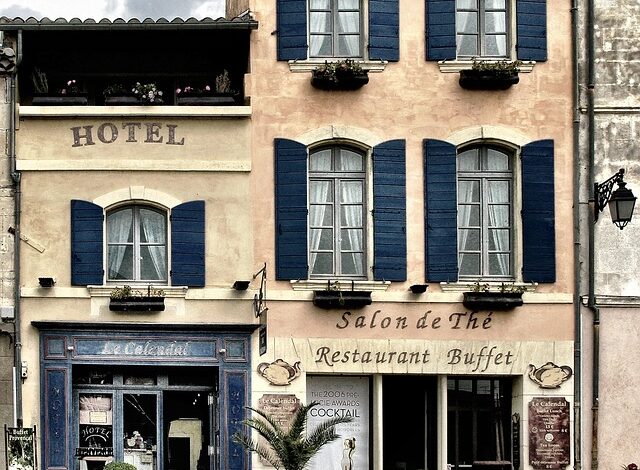Boutique Hotels That Redefine Luxury: A New Era of Hospitality

In an age where travel is no longer just about reaching a destination but about experiencing it, boutique hotels have emerged as the epitome of personalized luxury. These intimate, design-driven properties are redefining what it means to indulge in opulence, offering guests not just a place to stay, but an immersive journey into art, culture, and unparalleled comfort. Unlike their larger, chain-hotel counterparts, boutique hotels focus on exclusivity, attention to detail, and creating unforgettable memories. In this article, we will explore how boutique hotels are revolutionizing the concept of luxury, their unique characteristics, and why they are becoming the preferred choice for discerning travelers.
The Rise of Boutique Hotels
Boutique hotels first gained prominence in the 1980s, with pioneers like Ian Schrager and Steve Rubell introducing the concept through iconic establishments such as The Morgans in New York City. These hotels were designed to break away from the cookie-cutter aesthetics and impersonal service of traditional hotels. Instead, they offered a more intimate setting, often housed in historic buildings or architecturally significant structures, with interiors that reflected the local culture and artistic flair.
Today, boutique hotels have evolved into a global phenomenon, catering to travelers who seek authenticity and individuality. They represent a shift from mass-market hospitality to bespoke experiences, where every element—from the architecture to the amenities—is carefully curated to evoke emotion and tell a story.
What Sets Boutique Hotels Apart?
1. Unique Design and Architecture
One of the hallmarks of boutique hotels is their distinctive design. Each property is a masterpiece in its own right, often blending contemporary aesthetics with local traditions. Whether it’s a restored colonial villa in Bali, a sleek urban retreat in Tokyo, or a rustic-chic lodge in the Swiss Alps, boutique hotels celebrate creativity and craftsmanship.
For instance, The Siam in Bangkok combines Art Deco elegance with Thai heritage, while Amangiri in Utah seamlessly integrates into the rugged desert landscape, offering guests a sense of harmony with nature. This emphasis on design ensures that no two boutique hotels are alike, making each stay a one-of-a-kind experience.
2. Personalized Service
Unlike large hotels where staff may cater to hundreds of guests at once, boutique hotels pride themselves on delivering highly personalized service. Guests are treated as individuals rather than numbers, with staff going above and beyond to anticipate needs and create tailor-made experiences. From arranging private tours to recommending hidden gems known only to locals, the level of care is unmatched.
Imagine arriving at a boutique hotel in Paris and being greeted by name, handed a glass of champagne, and presented with a customized itinerary based on your interests—all before you’ve even checked in. Such gestures transform a simple stay into something truly extraordinary.
3. Intimate Atmosphere
With fewer rooms (typically ranging from 10 to 100), boutique hotels foster a sense of intimacy and exclusivity. There’s no overcrowding in common areas, no long waits for elevators, and certainly no feeling of getting lost in the crowd. Instead, guests enjoy a serene environment where they can relax and unwind without distractions.
This intimate atmosphere also encourages interaction among guests, creating opportunities for meaningful connections. Many boutique hotels host events like wine tastings, cooking classes, or live music performances, further enhancing the communal spirit.
4. Culinary Excellence
Food plays a central role in the boutique hotel experience. Many properties boast award-winning restaurants helmed by renowned chefs, offering menus that highlight seasonal ingredients and regional specialties. Others take dining to new heights with innovative concepts, such as rooftop bars overlooking city skylines or private beachfront dinners under the stars.
Take Fogo Island Inn in Newfoundland, Canada, for example. This boutique hotel sources all its ingredients locally, supporting sustainable practices while showcasing the island’s rich culinary heritage. Every meal becomes a celebration of place and community.
5. Immersive Experiences
Luxury is no longer confined to plush furnishings and lavish amenities; it’s about creating moments that resonate deeply. Boutique hotels excel at crafting immersive experiences that allow guests to connect with their surroundings. Whether it’s learning traditional pottery techniques in Mexico, embarking on a wildlife safari in Africa, or practicing yoga amidst rice paddies in Indonesia, these activities elevate the travel experience beyond mere sightseeing.
Why Choose a Boutique Hotel?
A Haven for the Discerning Traveler
For those who value quality over quantity, boutique hotels offer a sanctuary from the hustle and bustle of modern life. They appeal to travelers who appreciate the finer things but also crave authenticity and soulfulness. By choosing a boutique hotel, you’re not just booking a room—you’re investing in an experience that enriches your journey.
Supporting Local Communities
Many boutique hotels prioritize sustainability and social responsibility, working closely with local artisans, farmers, and businesses. This commitment to ethical tourism helps preserve cultural heritage and empowers communities. For socially conscious travelers, staying at a boutique hotel is a way to make a positive impact while enjoying a luxurious escape.
Perfect for Special Occasions
Whether you’re celebrating a milestone anniversary, planning a romantic getaway, or simply treating yourself to some well-deserved pampering, boutique hotels provide the perfect backdrop. Their ability to customize services ensures that your special occasion feels truly magical.
Top Boutique Hotels Around the World
To inspire your next adventure, here are some of the world’s most exceptional boutique hotels:
- Singita Grumeti (Tanzania)
Nestled within a private reserve bordering the Serengeti, Singita Grumeti offers unparalleled wildlife encounters combined with eco-luxury accommodations. - Belmond Hotel Caruso (Italy)
Perched on a cliffside in Ravello, this former palace boasts breathtaking views of the Amalfi Coast and exudes old-world charm. - Capella Ubud (Indonesia)
Designed by Bill Bensley, Capella Ubud immerses guests in the jungles of Bali with tented camps that blend seamlessly into the natural landscape. - The Ritz-Carlton, Kyoto (Japan)
A harmonious blend of Japanese tradition and modern sophistication, this riverside retreat captures the essence of Kyoto’s timeless beauty. - Explora Patagonia (Chile)
Located in the heart of Torres del Paine National Park, Explora Patagonia invites adventurers to explore one of the planet’s most stunning wilderness areas.




